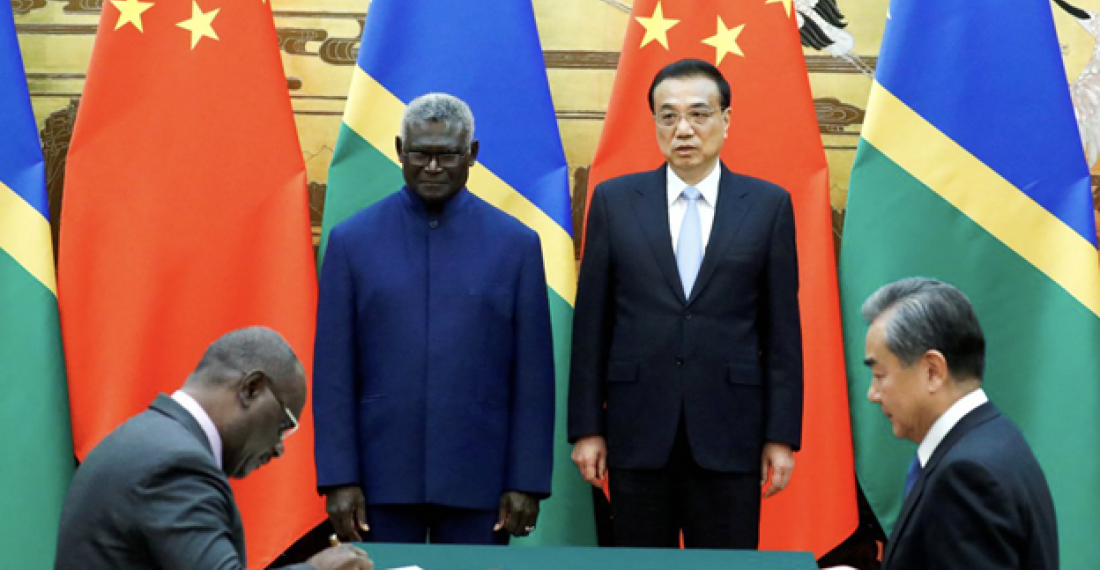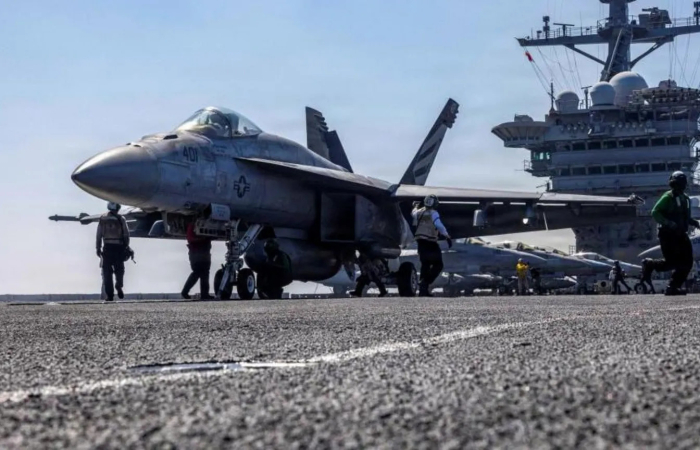The island nations of the pacific are often referred to as paradise on earth. Their idyllic life, amazing nature and friendly people help re-enforce this image.
Well now it seems that China has managed to establish a foothold in this paradise.
The Foreign Ministry of China announced on 19 April that Foreign Minister, Wang Yi, and his Solomon Islands counterpart, Jeremiah Manele, had signed a security deal between the two countries last week. The increasing influence of China has worried Western powers, and a United States official visited the Solomon Islands over the weekend to find out more on the situation in the South Pacific country.
Last month, opposition politicians in the Solomon Islands leaked a draft of the deal that China and the Solomon Islands were preparing to sign. The details of the pact included the ability for China to send both police officers and armed forces to the islands as well as the ability to replenish naval vessels. While Beijing stated that the deal does not have a military element, a Solomons lawmaker said that the official version was “very close” to the draft leaked last month.
The deal comes in response to riots in the capital Honiara that targeted Chinese-owned businesses. The completion of the agreement will expand China’s leverage in the Pacific region. Although the Solomon Islands say that the pact will not undermine peace, a US National Security Council spokesperson said, “We are concerned by the lack of transparency and unspecified nature of this agreement.” An Australian Labor politician said the deal was “the worst failure of Australian foreign policy in the Pacific since the end of World War II.” Australia has long been considered the natural security partner of countries in the Pacific. Australia signed a security deal with the Solomon Islands in 2003 in response to ethnic riots.
The United States has responded to the deal by accelerating the opening of an embassy in the country. The US has not had a diplomatic presence in the Solomon Islands for nearly three decades. The US announcement was preceded by a meeting between Kurt Campbell, the top White House Indo-Pacific official, and Manasseh Sogavare, prime minister of the Solomon Islands. The White House stated that the meeting included a “substantial discussion” regarding the Beijing-Honiara security deal. The US also announced an arrangement with the Solomon Islands surrounding aid and vaccines. The visit was part of a pacific tour that included stops in Fiji and Papua New Guinea as well as meetings with high-level US military officials and allies. The situation in the Solomon Islands is emblematic of the ongoing power struggle between the West and China in the Pacific as both sides vie for influence.
China’s strategic moves to expand its regional leverage are now beginning to be taken seriously by Western powers. The deal illustrates Beijing’s increasing allure in the security area.







